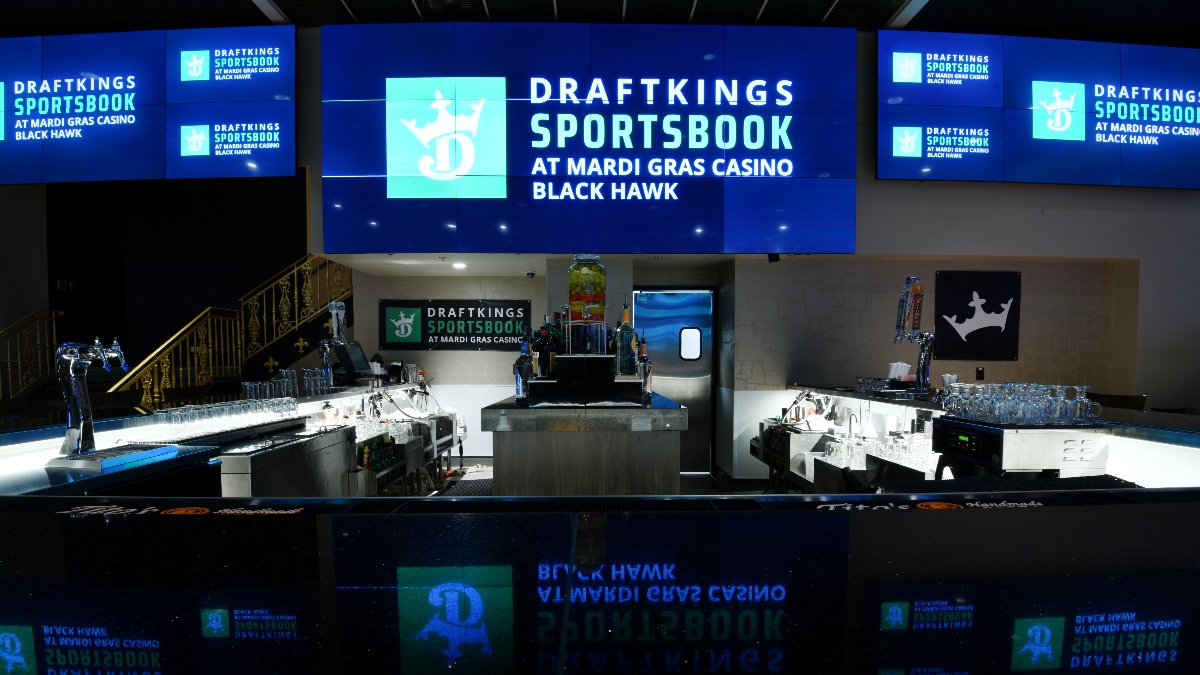Gaming on the 2020 Ballot Sees Massive Nationwide Support for Legalized Sports Betting
Hyoung Chang/MediaNews Group/The Denver Post via Getty Images
Voters approved referendums in all six states with gambling on the 2020 ballot, a clean sweep that will expand casino gaming in three states and bring legal sports betting to three more.
Some form of legal gaming is currently authorized in 44 states, and more than 45 percent of American adults live in states with regulated sports betting, according to the American Gaming Association.
The big day for legal gaming underscores the vital role the industry plays in the country, especially as it recovers economically from the COVID-19 pandemic, AGA President Bill Miller said in a statement Wednesday.
“As a result of successful ballot measures in six gaming states, more Americans will have access to much-needed job opportunities, dedicated tax revenue, and safe, regulated entertainment options closer to home,” Miller said.
Here are the major developments from the gaming industry's big day:
| Never Bet Alone: Download The Action Network App for live odds & scores, picks from experts & your friends, and live win probabilities on all your bets. |
Maryland Approves Sports Betting
The most-watched sports betting ballot measure passed easily, opening the door for legal wagering in what industry stakeholders believe will be one of the nation’s more lucrative per capita markets, thanks to Maryland’s highly educated, tech-savvy and affluent population – as well as strong fan support for local sports teams.
Maryland voters’ 66.3% – 33.7% support for this year's ballot measure means every Mid-Atlantic state will have legal sports betting.
The aforementioned demographics and neighboring competition (all states bordering Maryland have already approved legal wagering) had industry stakeholders optimistic voters would support the constitutional amendment that will permit wagering. Now lawmakers will have to work through critical follow-up legislation that will determine tax rates, operator eligibility and the number of retail and online licenses available, among other major decisions.
Louisiana Sports Betting Passes Most Parishes
Louisiana voted at the parish level for sports betting, but nearly all the state will be able to place a legal wager.
Voters in 55 of the state’s 64 parishes approved sports betting, making up more than 90% of the state’s population. A similar parish-by-parish daily fantasy sports authorization ballot measure only garnered support in 47 parishes in 2018.
Parishes with casinos, such as Orleans (New Orleans), Caddo (Shreveport) and East Baton Rouge (Baton Rouge), all approved sports betting, as expected, but so too did every Parish with more than 100,000 residents. The nine parishes voting “no” are exclusively in rural areas.
Lawmakers will now determine how sports betting will be conducted (and if that will include mobile wagering) when they return for their 2021 legislative session, scheduled to begin in April next year.
Check out our new NFL PRO Report, where we highlight key factors that provide betting edges — like large wagers, historically profitable betting systems, model projections and expert picks — that when combined with sharp money can powerfully detail the smartest bets on a given slate.
South Dakota Sports Betting Approved
What appeared heading into Election Night as the closest races for any sports betting measure mirrored the lopsided support from across the country.
With some votes still outstanding as of Wednesday, South Dakota sports betting was only accelerating its “yes” vote lead up to a 59% – 41% margin. South Dakota’s constitution will be amended so casinos in the historic gaming town of Deadwood can accept sports wagers. By law, the state’s federally recognized Native American casinos will also be able to take sports bets.
And, as with other states that approved sports betting measures, lawmakers will need to pass follow-up legislation before wagering can begin.
Nebraska Permits First Casinos
One of the last remaining states without casino gaming is about to lose that distinction.
Nebraska voters overwhelmingly backed three separate constitutional amendments that will legalize, regulate and tax, respectively, “games of chance” in the Cornhusker State. All six state horse tracks will now be able to convert into “racinos” that permit slots, table games and other “Las Vegas-style” casino offerings.
All three amendments passed by roughly two-to-one margins, a resounding voice of support for commercial gaming in a state that has long resisted gambling in any form. They overcame one of the more organized “no” campaigns of any gaming measure in the 2020 cycle, which included public and financial opposition from Gov. Pete Ricketts and former Nebraska football coach and Senator Tom Osborne.
First Virginia Casinos Finalized
Virginia will also have its first-ever legal casinos.
Lawmakers approved five casinos earlier this year, but all five need local voter approval. Four of the five posted referendums on this year’s ballot and, as expected, all four overwhelmingly supported the new casinos.
The cities of Bristol, Danville, Norfolk and Portsmouth all easily approved casinos in their respective municipalities, capping years of work from area politicians and civic leaders that championed the facilities as economic drivers. The fifth possible casino destination, Richmond, will likely hold its ballot measure next year.
Colorado Voters Expand Gaming
Colorado continues growing its casino gaming options.
Casinos in the historic mountain gaming towns of Black Hawk, Central City and Cripple Creek will all be able to expand gaming options and accept bets larger than $100 thanks to overwhelming voter support on a 2020 ballot measure. Many of the roughly three-dozen casinos spread between the three towns have expanded their physical retail footprints in recent years and will now be able to do the same with their gaming options.
The massive “yes” vote comes a year after a voter-backed amendment allowed the towns’ casinos were to open retail and online sportsbooks – and by a much larger margin.
How would you rate this article?
